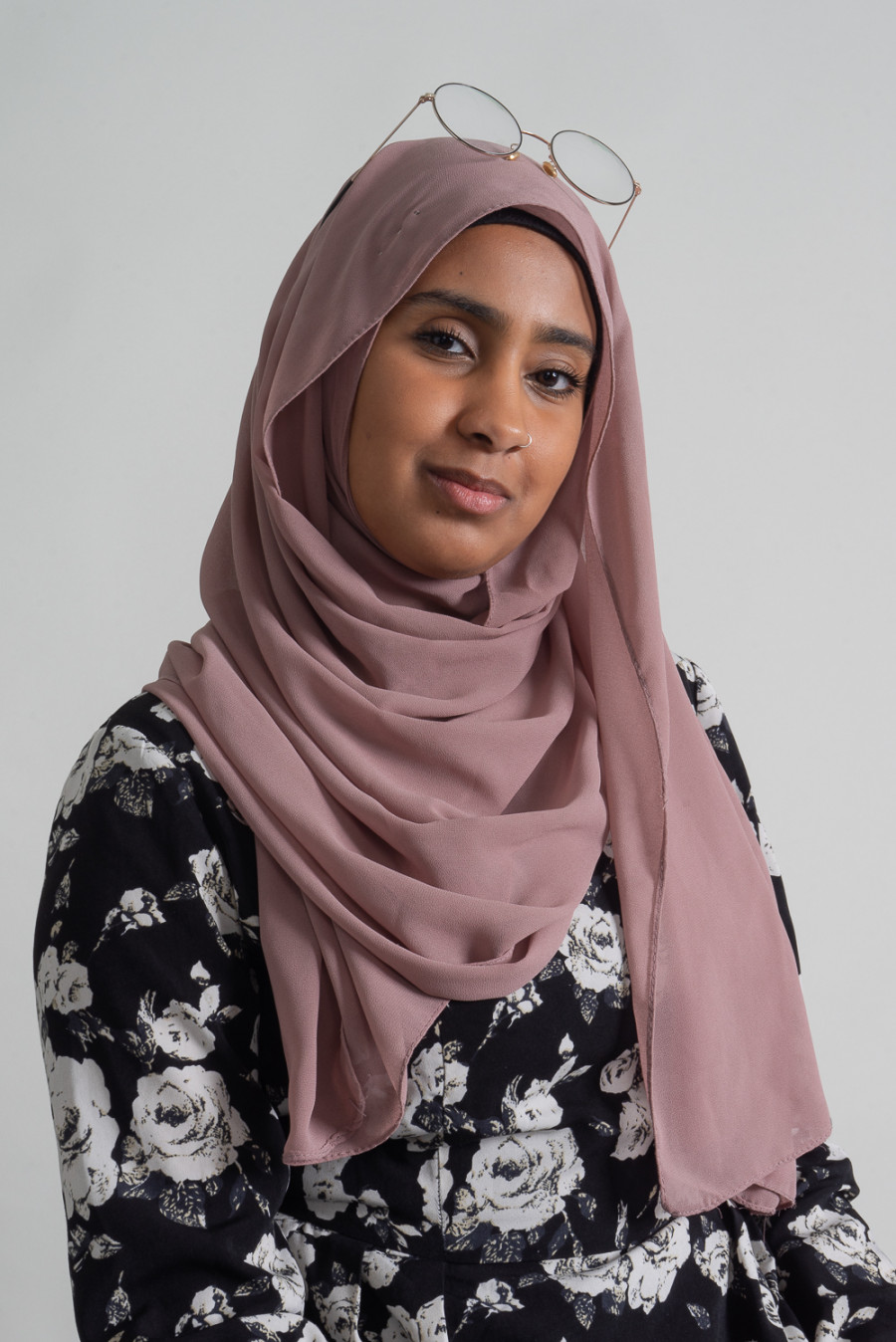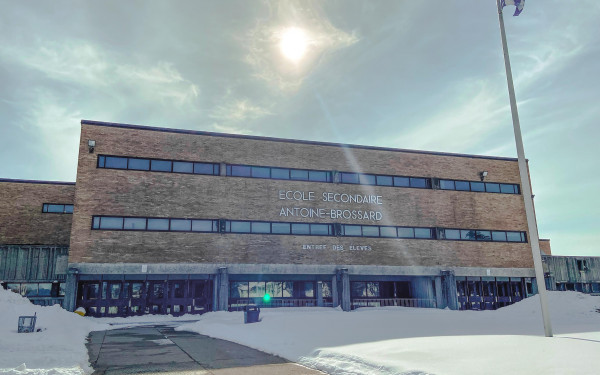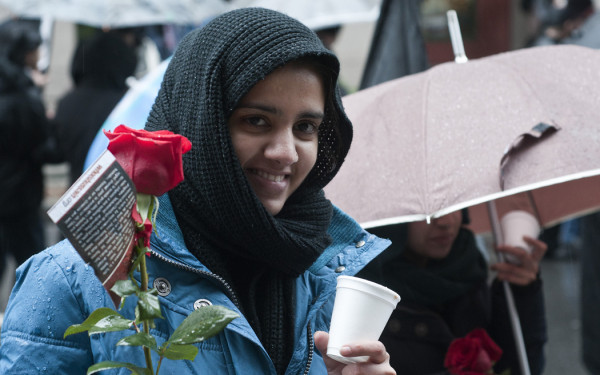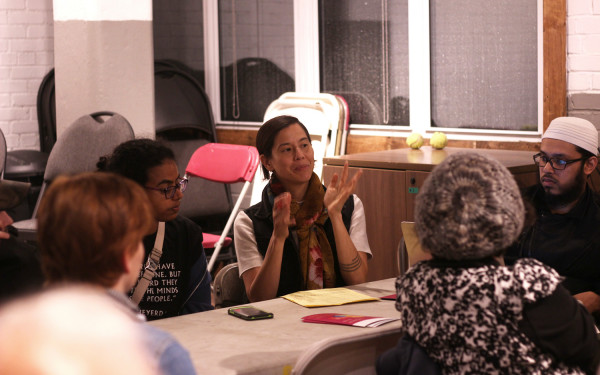A Concordia Student Describes Her Experiences Growing Up Racialized in Montreal
The Ups and Downs of What it’s Like to Be Different
It was on a Sunday afternoon, at my favourite mall to go to as a kid, that I realized that things were not always going to be okay for me. For us.
It was on a Sunday afternoon, at my favourite mall to go to as a kid, that I realized that things were not always going to be okay for me. For us.
My mother and I were waiting for my father who entered a store. Suddenly, a woman randomly started to shout words that I don’t remember to my mother. What I do remember, is her, angrily yet confidently, yelling at my role model, pointing at her hijab and screaming “T’es une grosse vache!” The young child in her early elementary school years that I was, felt the need to defend her mother. And so I shouted “C’est toi la grosse vache!” It was at this moment that I knew we were considered different, my mother and I. Only I didn’t quite understand how or why.Other encounters in my life helped me pinpoint a few reasons why I was seen as “different” by others, although I couldn’t see it myself. I remember, my first day of high school. As my brother, who was one year older than me, introduced me to his friends, one of them, looking confused, asked him: “She’s your sister? Why is she Black?” My brother looks paler than me. And although, to the guy who asked, it was a very normal question, it still kind of did something to me.
It irritated me. I was wondering why he asked my brother why I was Black. Why did he not ask him why he was white? Does that mean that being white is the norm, and as the younger sister who’s Black, I am defying the norm? I didn’t have an answer to the question then. But I remembered it. I remembered that my brother had to be questioned about my non-white features.
High school was a fascinating and engrossing time for me. I had a white, Quebecois atheist, science teacher. One who asked me if my religion forbids its believers to meditate.
This teacher set aside time for meditation at the beginning of each one of his classes, that students could take part in on a voluntary basis. One day, I decided that I did not want to participate and closed my eyes in his classroom. After all, he claimed it was absolutely a choice of one’s own free will. During the little time when I kept my eyes opened, minding my own business, he asked me if I decided not to meditate because my religion told me not to.
Instead of asking me why I decided not to take part in his meditation session, he decided that he would bring the question of faith to the table.
It was then that I asked myself whether he would have posed the same question had I not been wearing my hijab. He clearly assumed that I was not capable of making my own decisions. Fascinating.
After the fascination and strangeness of high school, college came. In my case it was like a part-time job. Around that same time was also when I started my first part-time job, at a pharmacy located in a very multicultural neighborhood. I was very aware of that. I was aware of it because I knew that by working in a multicultural area, where everyone is socially labeled “different” in a way, I would not stand out.
Or so I thought.
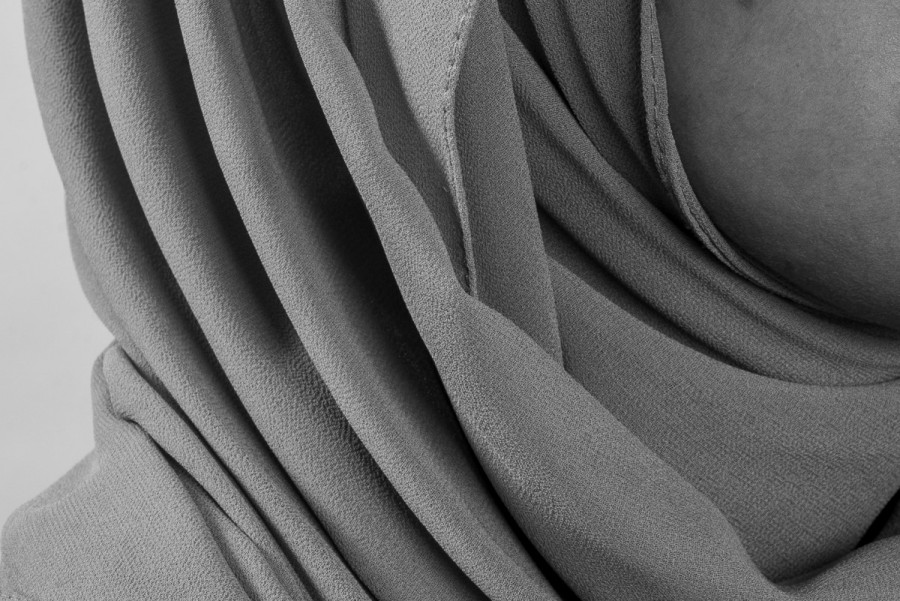
Until the day a caucasian woman had to remind me. She just had to remind me that I am not welcomed and that I should not be given the right to work in the province because I am veiled.
Or because I am not white. Or both. That is when I realized that even in the most diverse of places, as long as I am part of the society in which I live, I will always stand out.
Racism and discrimination exist here. They’re an actual thing.Montreal is a diverse city. Often, with a diversity of people, we find different opinions, various ways to define things, and difficulty of understanding each other.
The incidents I mentioned are not the only ones I’ve experienced in terms of discrimination, racism, and Islamophobia in the public sectors and institutions of Montreal. They only represent a few of the things that “different” people go through every single day.
These situations helped me pinpoint what my “different” was. It was being a Muslim woman of colour. What it also taught me more than anything, is that my identity is important. It matters. My “different” matters, regardless of what anyone else thinks or say.
I fight battles daily. Some days it will be because I am a woman. Other times, because I am a Muslim. At different days, it will be because I am of colour. Often, it will be because of all these things combined together.
What upsets me, is that every day, I have to work harder to feel safe. I should feel safe as a person of colour, safe as a woman, and safe as a Muslim.
It is not okay for me, or anyone labeled “different” to feel like our identity compromise our safety.
Every day, I fight to be seen as I am, not as how people want to see me. For some, “Muslim woman of colour” means “an oppressed and weak stranger living in Montreal.” Every day, I am unwillingly forced to listen to people’s criticism of who I am. But, every day, I decide to resist. I choose to remember the person that I know I am, not the person they forcefully try to impose on me.
So, with all these challenges, you might ask me “Sarah, where’s the joy?” Well, let me tell you about the joy. It is knowing that I am much more than the labels that this society gave me and keeps on giving me. I am much more than the shouts, yells, and looks directed my way. My joy is that I am confidently accepting who I am and am proud of her. If I am incapable of doing this to myself, I will give room for others to remind me of who I am not. Who they want me to be.
For this reason, I have decided that I have the right to love, accept, and stand up for my “different” parts. I have to do it. I owe this to myself.

I use my voice, my knowledge, my strength, and my experiences. I keep my smile on my face, despite carrying the heavy baggage of being racialized in a world that believes that racism is fading, when the rest of us are shouting loud and clear that it’s still out there.
I smile, not because I am happy about the situations that I am living or because I accept this. I smile out of strength. I smile because I decide that I will not let this destroy me. I smile because I have decided to replace my mind’s endless chatter with fruitful actions. I smile because I can, and no one will ever take that away from me.
My dear person of colour, I know that from the title of this piece, you could imagine that I was addressing mainly Muslim women of colour. Women who look and are like me. But my dear person of colour, whether you are a woman or not. Whether you are Muslim or not, here is my advice for you.
They say “What doesn’t kill you makes you stronger.” I say you were strong from the beginning, and what didn’t “kill you” is only a means for you to find that strength within you. It has always been there. You just keep finding pieces of it every time you go through something difficult. And one day, your strength will become whole and you will see how invincible you truly are.
As long as you don’t listen to them. Listen to your colour, your accent, your traits, your faith, and trust who you are.

